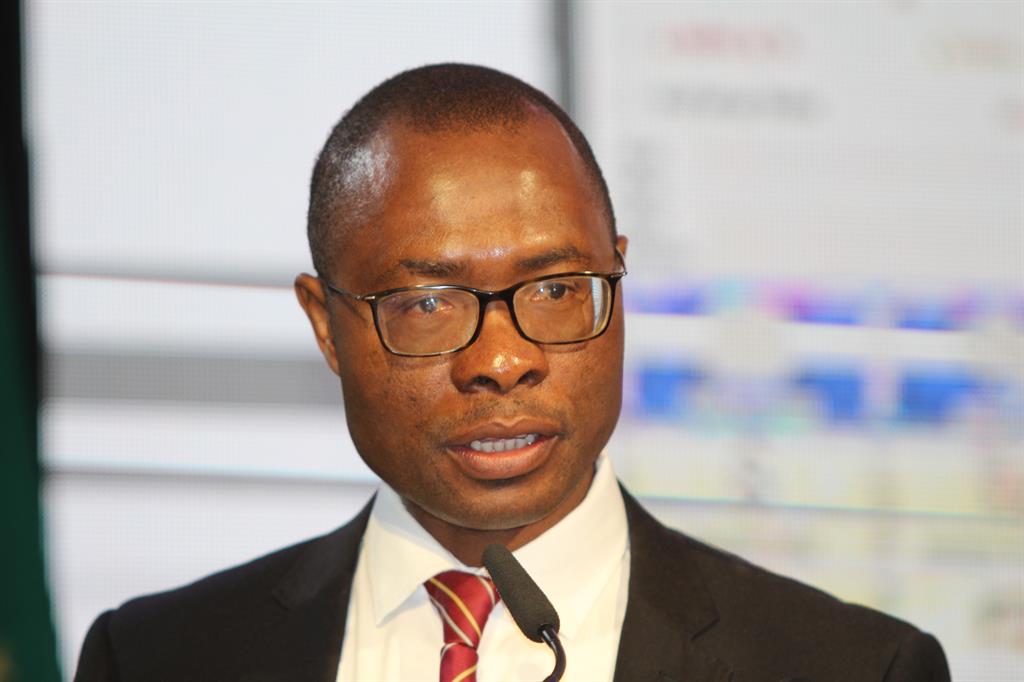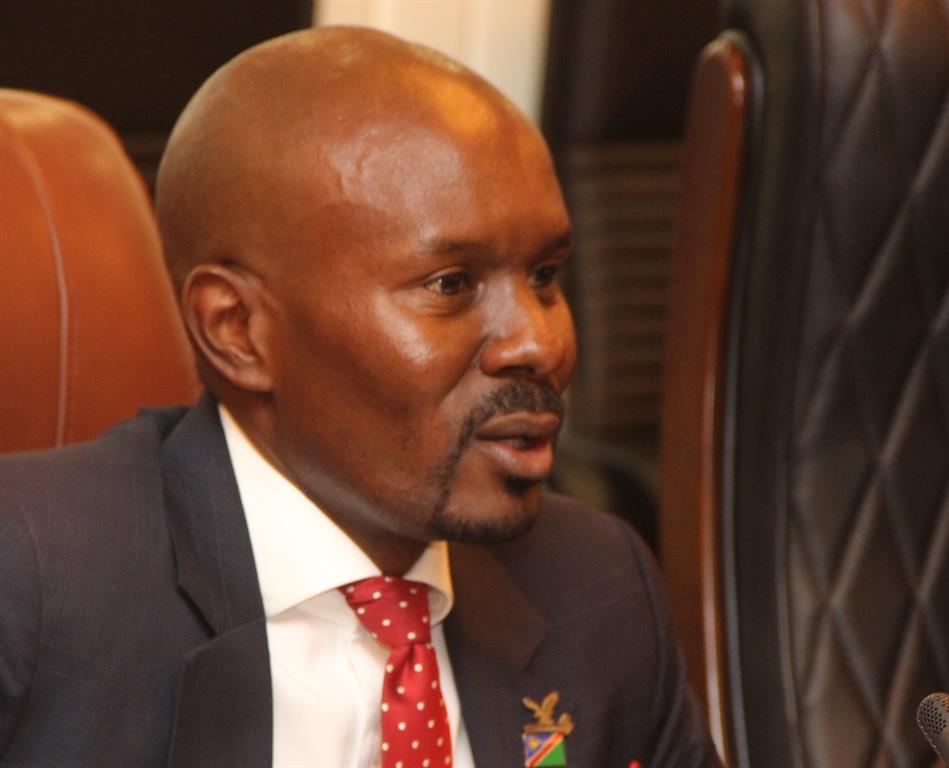Geingob launches Namibia Revenue Agency
Every Namibian who earns above the minimum threshold of N$50 000 per annum irrespective of what they do, is required to pay tax by law.
PHILLEPUS UUSIKU
Accountability, honesty and loyalty are some of the values that will ensure that the newly launched Namibia Revenue Agency (NamRa) which will be key in collecting tax revenue, excel and efficiently achieve its objectives.
The tax revenue collecting body was officially launched yesterday by president Hage Geingob at the Windhoek Country Club, which saw finance minister Iipumbu Shiimi handing over the power of revenue collection to NamRa’s commissioner, Sam Shivute.
Speaking at the event, Shivute notes that they have developed a clear, practical and unifying vision to guide them in achieving their objectives.
He further stated NamRa’s mandate is a very serious responsibility, hence, consultations with different stakeholders played a crucial role in developing a strategy and vision for the institution.
“Our vision at the Namibia Revenue Agency is to be a world class revenue agency, serving with passion to positively impact the livelihood of every Namibian. We can never aim to be an average or second-class agency,” he said.
He mentioned that tax contribution will help positively impact lives of every Namibian as it will determine the quality of roads, availability of sufficient medicines and stationaries in hospitals and schools, and also ensuring that civil servants are remunerated.
Tax compliance
NamRa’s strategic plan aim to improve voluntary compliance through tax education and stakeholder’s engagements.
“Tax compliance in Namibia stands at 57% which is very low. Even within the 57%, not everyone is declaring and settling what they are supposed to pay,” he said.
Transfer pricing will be a practice of the past to ensure that Namibia collects sufficient revenue to enhance economic growth and development, Shivute added.
Also speaking at the launch is finance minister Iipumbu Shiimi who pointed out that Namibia is one of the countries with a high tax to Gross Domestic Product (GDP) ratio.
This implies that most of Namibia’s revenue is generated through tax collection. Hence, it took a while to justify why Namibia needed a revenue agency. However, there was a need to increase efficiency in collecting tax revenue, while at the same time expanding the tax base.
Shiimi urged everyone who earns above the minimum threshold of N$50 000 per annum irrespective of what they do, to pay tax as it is their national duty.
Redistribution
Geingob in his speech mentioned that transformation of tax, customs and excise administration function into a semi-autonomous institutional setting represents a distinct addition to the stock of robust national institutions with great latitude of transparency and accountability, thus enhancing public trust.
This institutional reform presents opportunity to achieve greater equity in the revenue administration function. “The loft goals of our national Vision 2030 inspire us to be an industrialized, knowledge-based economy with decent living conditions for all Namibians,” he added.
The taxpayer community expects to experience the flow of benefits arising from taxation in the form of efficient public infrastructure, affordable and reliable public services and social protection for the vulnerable members of the society, Geingob said.
Accountability, honesty and loyalty are some of the values that will ensure that the newly launched Namibia Revenue Agency (NamRa) which will be key in collecting tax revenue, excel and efficiently achieve its objectives.
The tax revenue collecting body was officially launched yesterday by president Hage Geingob at the Windhoek Country Club, which saw finance minister Iipumbu Shiimi handing over the power of revenue collection to NamRa’s commissioner, Sam Shivute.
Speaking at the event, Shivute notes that they have developed a clear, practical and unifying vision to guide them in achieving their objectives.
He further stated NamRa’s mandate is a very serious responsibility, hence, consultations with different stakeholders played a crucial role in developing a strategy and vision for the institution.
“Our vision at the Namibia Revenue Agency is to be a world class revenue agency, serving with passion to positively impact the livelihood of every Namibian. We can never aim to be an average or second-class agency,” he said.
He mentioned that tax contribution will help positively impact lives of every Namibian as it will determine the quality of roads, availability of sufficient medicines and stationaries in hospitals and schools, and also ensuring that civil servants are remunerated.
Tax compliance
NamRa’s strategic plan aim to improve voluntary compliance through tax education and stakeholder’s engagements.
“Tax compliance in Namibia stands at 57% which is very low. Even within the 57%, not everyone is declaring and settling what they are supposed to pay,” he said.
Transfer pricing will be a practice of the past to ensure that Namibia collects sufficient revenue to enhance economic growth and development, Shivute added.
Also speaking at the launch is finance minister Iipumbu Shiimi who pointed out that Namibia is one of the countries with a high tax to Gross Domestic Product (GDP) ratio.
This implies that most of Namibia’s revenue is generated through tax collection. Hence, it took a while to justify why Namibia needed a revenue agency. However, there was a need to increase efficiency in collecting tax revenue, while at the same time expanding the tax base.
Shiimi urged everyone who earns above the minimum threshold of N$50 000 per annum irrespective of what they do, to pay tax as it is their national duty.
Redistribution
Geingob in his speech mentioned that transformation of tax, customs and excise administration function into a semi-autonomous institutional setting represents a distinct addition to the stock of robust national institutions with great latitude of transparency and accountability, thus enhancing public trust.
This institutional reform presents opportunity to achieve greater equity in the revenue administration function. “The loft goals of our national Vision 2030 inspire us to be an industrialized, knowledge-based economy with decent living conditions for all Namibians,” he added.
The taxpayer community expects to experience the flow of benefits arising from taxation in the form of efficient public infrastructure, affordable and reliable public services and social protection for the vulnerable members of the society, Geingob said.







Kommentar
Allgemeine Zeitung
Zu diesem Artikel wurden keine Kommentare hinterlassen